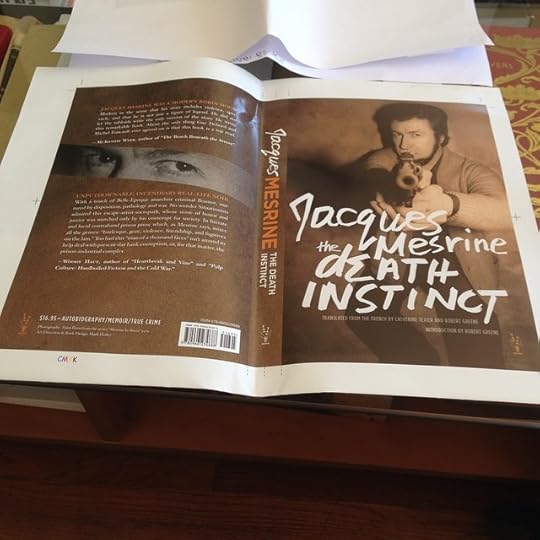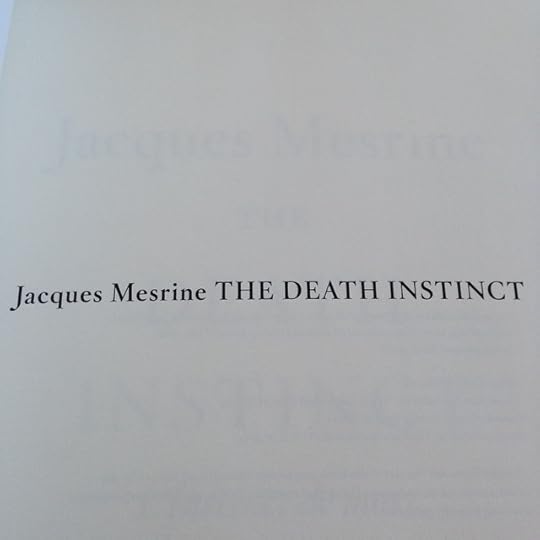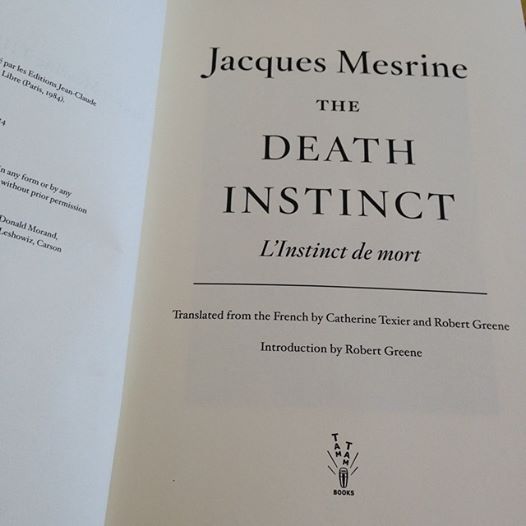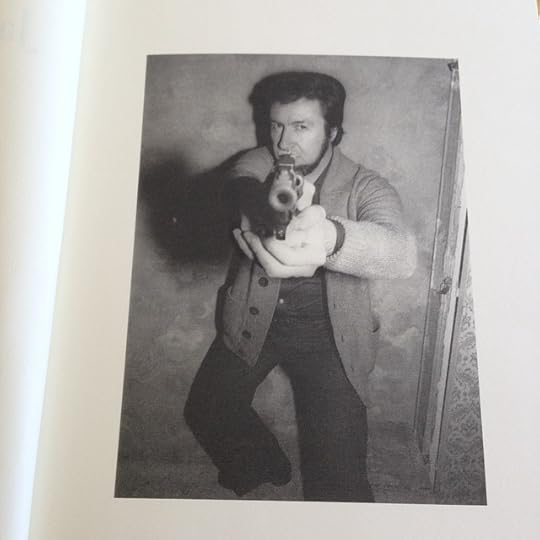Tosh Berman's Blog, page 219
August 14, 2014
August 14, 2014

August 14, 2014
Very few people know this, but I’ve been writing westerns, or in my term “horse operas” for the past 30 years. My best selling title is “Nothing But a Drifter, ” which is about a drifter who comes upon a father and daughter that is running a small cattle ranch. He is hired at this ranch, but must deal with the jealousy of another neighboring rancher, due to him being attracted to the daughter. Things now come to a head, with the father fighting with the daughter, and her sensual attraction to the drifter. Add a Cheyenne attack and bingo, you have a “horse opera.” I wrote for various mass-market paperback publishers, such as Ace and Fawcett Books. Although I wrote westerns, I was very much interested in writing science fiction novels as well. My biggest (and best selling) title is “Always The Black Knight.” in some of my other titles I tried to match Science Fiction with the Western - specifically “Martian on the Range.” unfortunately that was my worst selling novel.
I got into writing when I started editing a series of folk music fanzines, such as “Caravan, ” and “Gardyloo.” I hand-printed the zine and went over to Izzy young’s Folklore Center. It sounds weird now, but a lot of the folkies during that time period loved science-fiction writing. I think a lot of it is due to the utopian feeling that was out there, and we had to imagine that such a paradise can only exist in the outer space. But in our hearts we just wanted to make it work here on earth. I believe that this is why I wrote westerns as well. For sure, there was a conflict in my soul regarding the outer-space and life on earth, as a western.

Some of my books were translated into French, and I had quite a large readership from that country. I studied French throughout my life because I had an interest in the connection between American folk music to the French chanteuse scene that was taking place in Paris during the late 1950s. Around this time, I was approached by a French publisher to translate the Lucky Luke comic series for the English speaking world. I had to translate the stories by René Goscinny, which deals with the cowboy known to “shoot faster than his shadow.” While I was translating Goscinny’s script for Lucky Luke, I was interested that he based a lot of the narration on factual events that took place in the wild west. The French are geniuses at conveying a foreign narrative and to make it have a sense for the French reading public. For me, I just thought they were great adventure (and funny) stories, so yeah, it was successful here in the States as well.
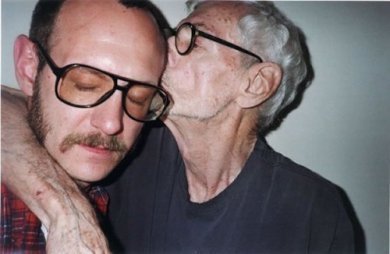
Very few people know this, but with respect to my westerns, the book covers were actual photographs and all were taken by the photographer Terry Richardson. I met him through his dad, Bob, when Terry was a teenager and was into being a punk musician at the time. Years later, I was surprised when he took up the camera, just like his dad. I never had any direct dealings with him, because I had nothing to do with the design or any say on the book cover designs for my novels. All of that was decided by the publisher. But beyond that, Terry had a sixth sense in choosing the right image for the cover. I don’t think he even read any of my books, but he just riffed off the titles, and bingo, there’s the cover. For one, he always chooses a beautiful girl (of course) for the image of the book. I should know better, but I always found his images of women a turn-on. I always felt bad afterwards, but what can I say. One surprising fact is that I didn’t know Terry’s step-father was the musician Jackie Lomax. I’m a huge fan of his album he made for Apple Records, “Is This What You Want.” It’s a strange small world after all.
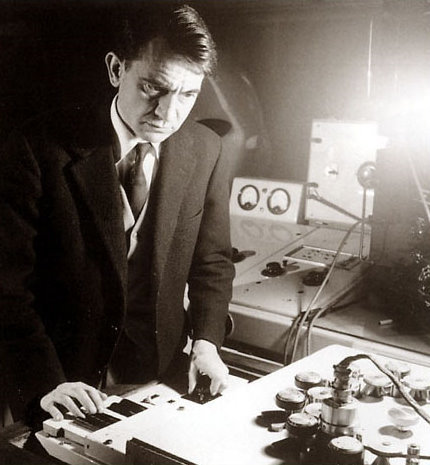
Through my connections with Izzy Young, I was able to combine my interest with the science fiction literary scene with music by Pierre Schaeffer. I always felt his music would be perfect for a science-fiction narrative, and I started a record label, with Izzy helping with the distribution, that was an album of Pierre’s music, but with a story by yours truly attached to the package. It was the only writing I did for my own pleasure. The album package was beautifully made, with the text making an appearance as a book within the album sleeve. Originally I wanted to have Terry take photographs as the illustrations for my narrative to be added to the package. But sadly it was already too expensive. The albums, were privately pressed by me, and in a limited edition of 1,000. The title of the book/album is Orphée 53 ("Orpheus 53"), which is based on an opera by Schaeffer. I think this project is my masterpiece and even though it won’t be seen by the great masses who purchased my westerns, I’m still honored that I can do such projects under the nose of my illustrious public out there.
Published on August 14, 2014 11:06
August 13, 2014
August 13, 2014

August 13, 2014
San Francisco is a wonderful town full of nice people, but the hills and the architecture drive me insane. Ever since I was a young boy I had a hard time dealing with hills or deep inclines. If I walk up a hill, I would feel someone is pushing me to the ground. If I was walking down the hill, I feel like I’m free-falling and I can’t control my balance. I not only get this feeling while walking on a hill, but also in moments of great stress. It had a profound effect on me in that I feel I have to avoid San Francisco as much as possible. Also staircases give me a significant problem as well. Especially if they’re grand staircase or if one has the capability to look down and see the various floors attached to the stairs. The look of depth is a horrifying death to me.

I went with a couple of friends to San Francisco not long ago. Elizabeth and Steven invited me to go with them, because they wanted to check out all the spots that were in the Alfred Hitchcock film “Vertigo.” They both knew about my fear issue, and they said that it was necessary to go with them because for sure they can cure my illness. I had my doubts about that, but also I found myself being slightly attracted to Elizabeth, and I didn’t want to shame myself in front of her, so I said yes.
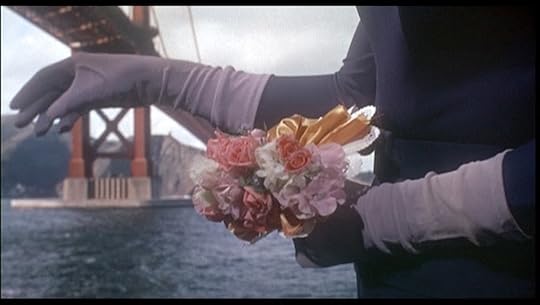
They picked me up in the morning and we drove up the coast, which was scenic, but also I started to feel a knot in my stomach, that wouldn’t go away. I tried to fall asleep in the back seat of their car, but just as I was in the process of drifting into a sleep, a vision would come to my head and jolted me awake. Yet, I kept my eyes closed during the entire trip. When Elizabeth touched my leg, I opened up eyes and in front of me was the main character, Scottie’s apartment, located at 900 Lombard Street. It was eerie, because the apartment hasn’t really changed at all. Steven wanted to knock on the door, but Elizabeth tried to pull him away. I refused to leave the car. I was beginning to regret this trip and my stomach ache became worse. Steven did knock on the door, where I suddenly closed my eyes. As I peeked, I could see there was no answer, which I thought “thank God!” But then Steven tried to look through a window, and I thought “Oh no.” Luckily no one was there, and it was decided that after a late lunch we will go to Fort Point, which is underneath the Golden Gate Bridge.
At first Elizabeth and Steven wanted to walk on the bridge, but I couldn’t do it, due to the space that seemed endless to me. It made me physically ill to assume that I would find myself in the middle of the bridge, which is 4,200 feet long, and I won’t be able to either go forward or back. Also looking down towards the water was a no-no for me as well. We eventually ended up at Fort Point, which is the famous scene where Madeleine (the lead female character) jumps into the waters, but is saved by Scottie. Elizabeth wanted to be in the exact same location as Madeleine before she jumped. I had to admit that there was something erotic about Elizabeth’s obsession over this film, and watching her play herself, yet under the influence of Madeleine was a sight to behold. Steven was out of the car and telling Elizabeth to “jump, jump.” She didn’t. I kind of wished she did, because I want to see if Steven would jump in to save her… or not.
We stayed in a large hotel near Union Square, and I had a hard time falling asleep due to the thoughts of going to the Mission San Juan Bautista the next day. Also I was clearly having thoughts regarding Elizabeth, and I wasn’t sure what that meant to me or anything else. Fear and eros seem to go together in my world, and I never could figure out what’s the connection is between the two. I also felt strange because I’m so much older than the couple, that I couldn’t imagine why they would want me to go on this trip with them. Nevertheless I was deeply scared, but also totally turned-on at the same time.
When we arrived at Mission San Juan Bautista, I was surprised to see it looking smaller than what it is portrayed in the film. I have heard that they re-built the mission in a Universal Studios back lot, but I’m not sure about that. I have a hard time telling what’s real or not real. I’m one of those people who go to a movie, and totally accepts whatever is on the big screen in front of me. I don’t go to doubt, but I go to accept the images and narration. It doesn’t seem proper for me to question the filmmaker’s intent, because I don’t as an audience member that is my role to do so. I did walk into the entrance with Steven and Elizabeth to the grand winding staircase. I couldn’t even look up, because the knot in my stomach was so painful to me. Both of them ran up the stairs screaming their head off. Steven was first, and kept telling Elizabeth to follow him. They were yelling at me as well, but I could only make it to the third step, and I just felt this emotional wall in front of me where I couldn’t go further. It seemed like it took forever till they reached the top, and Steven and Elizabeth both started to drop objects on me from that immense distance above. I think it was a car key that hit my head. Nevertheless it sort of hurt, and I was compelled to stay in place till they came down the stairs.

I didn’t hear anything. Then all of sudden I heard a sound of two objects hitting the ground outside the door. I yelled out their names, but I only received silence. I walked outside, but with my eyes closed. I walked blindly to the car, got in with the key that they dropped on me, and sat in the back seat. I decided to stay there till they come back.
Published on August 13, 2014 10:52
August 12, 2014
August 12, 2014

August 12, 2014
Throughout my life I always wanted to be elegant, like Alfred Lunt dinning with Radclyffe Hall at the Stork Club, but eventually I end up in a party quoting Sam Fuller “Film is like a battleground: love, hate, action, death… In one word, EMOTION.” The truth is I used to believe that the cinema was the ultimate art, and I think it was in the 20th century, but now it’s a shadow of what it used to be. For me, it’s music and of course the written page. What I find fascinating is watching contemporary films hitting against the concrete wall over and over again. It is like a moth that is attracted to the flame, either it is too stupid to realize that it will get burned to death, or it is an act of suicide?
The beauty of the cinema was the theater itself, and the tacky sodas and candy sold at the counter. My parents said to me that there were bats flying near the ceiling at the Chinese Theater on Hollywood Bouvelard. This little (non) fact made going to the movies into an adventure, and there was a slight chance one’s life will be altered forever. For instance, I remember seeing “Taxi Driver” for the first time on Hollywood Bouvelard (always the same street), and walking out and seeing a fleet of taxis in front of the theater. Was it a William Castle type of publicity, or just by chance? I suspect it was just happenstance, because what I saw in the theater, changed my life, and that is exactly how I saw the “real” world. Either by the hook or the crook, the world was transformed by another medium, the cinema.

The way we see films really changes the perception of that work. It’s very difficult for me to watch films on TV, computer or the phone. Although the medium has changed, cinema pretends that the format doesn’t matter, when in fact, the medium is the message. I tend to like to go to the cinema in a different country or culture. When I was in Mexico I saw a Cantinflas’ film “El analfabeto” (The Illiterate), and what I found interesting is hearing that Mexico’s reigning illiteracy (70% in 1930), and "Cantinflas is the illiterate who takes control of the language by whatever means he can". The ability to alter a situation or culture I think is pretty null, when it concerns the movies. What I think are my favorite films are all from YouTube, and it is mostly acts of violence, for instance the citizen of Gaza being shot down by a sniper. That type of footage seems to kill the imagination where it is very difficult for me to believe in the choreography of Michael Kidd, along with Gene Kelley.

What I do know, is that I can trust the cinema of Ron Mael (Sparks), because I see the images through his music, and the same when I read a book by Radclyffe Hall. Also I find it interesting that Alfred Lunt, as an actor, chose the theater over film. He realized the difference of the cinematic world, with its close-ups, montage, and other visual trickery, that it can’t replace the fake realism of the grand stage. I often dream that I am walking through Broadway and seeing the glamour of the lighting of the live theaters, and knowing that I will eventually end up in a broken down movie theater with a sleeping projectionist. Despite the fact that I wish for the grand and elegant life, I will settle for the cheap cinema. All my friends go there.



Published on August 12, 2014 11:23
August 11, 2014
August 11, 2014

August 11, 2014
The only thing I like about The Dave Clark Five is Denis Payton, their tenor and baritone sax player. It’s easy to find Dave Clark recordings on I-Tunes, but of course it is preferable to find the recordings on the original vinyl. There is one outstanding track of the Five called “Time, ” which features Payton as a solo player. I don’t know much about this tune, but it almost sounds like a Stan Getz song - and it has to be one of those pieces that were made in great haste as a b-side to some smasher-o a-side. Nevertheless it’s not easy to locate the sounds of the Five, due to the control that Dave Clark has over his material or to be more precise, the music of the Dave Clark Five. One wonders why someone would want to hoard the music to such a great degree, but perhaps it is something that is very precious to him. Or maybe he feels he can drain more money out of the dying music business. I always suspect that he pretty much stole his sound from the great Joe Meek recordings from the early 60s. The sad thing is the case that the work becomes a shadow of an era, instead of what it naturally is - a piece of music.
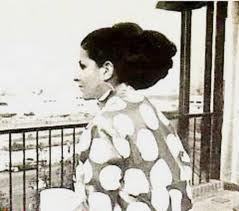
The control of one’s image by someone else is a very natural thing to be done. Whatever it is your work, or worst yet, a family member, it’s an uphill battle because you want to do the right thing, but sometimes you are only getting in the way of what is interesting about that person. Peter Folger, who was part of the Folger (coffee) family spent a great deal of his time protecting his daughter, Abigail from the damning articles or books about the Tate-LaBianca murders, which resulted in very little information about her and her life. Which is a shame, because it sounds like she was a very wonderful person. I rather know her as a living person, than as a dead victim, who by all accounts was at the wrong place at the wrong time - or maybe at the right place that was intruded upon people who were clearly wrong being there. Nevertheless I found it interesting that she had an interest in the arts -especially poetry and the theater. She was a debutante from San Francisco, who wore a bright yellow Christian Dior gown that she had purchased in Paris some years before the debutante ball. The interesting thing about her was her devotion to the issue of civil rights as well as the art world. She took a job at the University of California Art Museum in Berkeley as a publicity director.
In 1967, Abigail moved to New York and found a job as a clerk at the Gotham Book Mart on 47th Street. When I worked at Book Soup, I met the most amazing people, that I still remain in contact with, and some went off and became huge stars, writers, or … dead. Nevertheless each one had a profound effect on my life, and I just try to imagine what it would have been like to work with Abigail at the Gotham. Would we discuss Frank O’Hara, or maybe she liked French poetry. I imagine her more of being a fan of the New York School of poetry (whatever that is). The thing is there is very little information about her. We don’t know what her taste in music, books were and yet we do know that she was devoted to the art form of literature and music. All we know are the facts, such that she met the author Jerzy Kosinski at the bookstore and he introduced her to Wojciech Frykowski, a fellow Pole, and a bit of an adventurer. The perfect boyfriend for this New Yorker, who can only communicate fully to each other in French. Frykowski wanted to move to Southern California, hopefully to work with his good friend Roman Polanski, or at least hoping that would happen. Abigail decided to move with him to Los Angeles, where she wanted to be a social worker. Of course, things didn’t work out well.

I want to know more of Abigail as well as Denis Payton, but alas, due to a certain amount of controlling one’s history and the passing of time, it now becomes a world of shadows. As I have stated before, I ‘m OK in that world. I got the Dave Clark Five’s very rare album that came out only in Canada (of all places) called “Instrumental Album.” It has the Payton sound of sax sounding like metal against metal. It’s raw. I find it beautiful. There are certain instrumentalists who totally dominates a sound, and the only other person who can do that is Jah Wobble, with his bass on PIL’s “Metal Box.” In memory of Abigail Folger and Denis Payton, whose birthday, I’m celebrating today.
Published on August 11, 2014 11:08
August 10, 2014
August 10, 2014

August 10, 2014
Real estate never has been an interest for me. Therefore the worst form of nightmare is being dragged into a game of Monopoly, which seriously I never cared if I win or lose. It is nothing but just to pass the time. The only thing I like about the game is the design of the board, and its play money, plus the “chance” cards. The risk is always taking the chance, and I think real estate is all about planning, and then taking a chance that a specific neighborhood will move towards your direction – financially speaking. There is something about the great depression in the United States which inspired people to play with ‘imaginary property’ that they don’t actually have. Charlie Darrow is the inventor of “Monopoly,” but there were other people at the time playing their own version of this game, or at least with the subject matter regarding losing and gaining property.

“The Landlord’s Game, ” patented in 1904 by Elizabeth Magie, is the inspiration for “Monopoly.” The oddity of the game is that it demonstrated the economic ill effects of land monopolist and the use of land value tax as a remedy of them. So in a sense it is very much an anti-capitalist game, while “Monopoly” is about being greedy and making yourself wealthy through one’s greed. What I find interesting is how board games reflect on life, and even writers like Guy Debord, became devoted to the board game and actually invented such a game called “Le jeu de la Guerre (A Game of War). More likely he wanted this game to be just as popular as “Monopoly,” but I think that is impossible due to the animal-like desire for land and how much wealth can come from that property. The horror show aspect of real estate is the fact that it often destroys creativity and a form of currency. Art can be defined as cinema, literature, dance, theater, and visual - but I also think real estate is an art form as well, with respect to retail shops and how it affects a neighborhood.
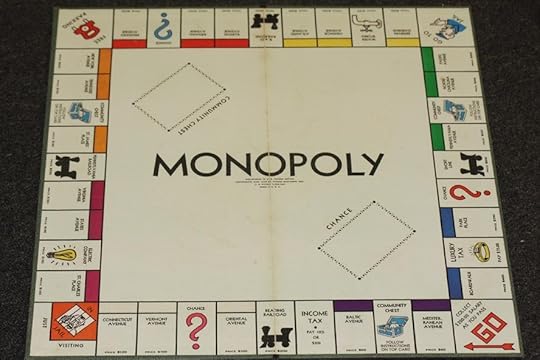
“Monopoly” and “The Landlord’s Game” are both fascinating. The latter exposes the corruption of the landlord, while “Monopoly” exposes a need to obtain wealth at all costs. A board game basically imitates real life, because life and politics are nothing but a board game, but played out in real time, with real results. I’m sure the Israelis are looking at the Palestinian issue as a board game. They must have a large table or a computer screen, where they can map out the territory and imagine it as a 3D image, where they can enter and then disappear by will. The same for Iraq and any other country involved in a military narrative. Then on top of it, they monitor reactions from the media - both from social networks to TV talking heads. As well as presidential elections or when there is one side fighting against another side. All of it is deemed to be a board game. The problem is one gets sucked into a set of rules of not of their own making. There is this and there is that. Surely there must be a third option?

Published on August 10, 2014 10:29
August 9, 2014
August 9, 2014
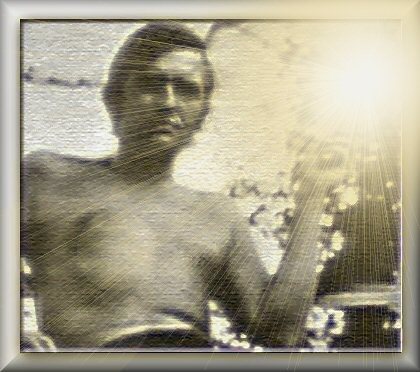
August 9, 2014
Lately I have been isolating myself from the world that is out “there.” At first, I would go to the woods every weekend, and then it would be four days out of the seven, but now as much as possible I try to stay in my cabin, that is not that far away from what would call civilization. When I go back to my backyard, I can see the city lights, which are beautiful, but one can only notice such beauty away from the city itself. Over the years I have built a small farm to grow vegetables, and I try to eat from this land as much as possible. I’m not a meat eater and I truly believe one should eat that is green and came from the mother earth. A good friend of mine, Wojciech Frykowski, who is an actor from Poland, told me “the highest form of self-restraint is when one can subsist not on other animals, but of plants and crops cultivated from the earth.” He is totally correct, and by total instinct on my part, I always trust an European on such matters.
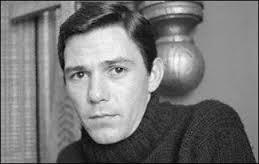
Since I don’t have a telephone at the cabin, I can only be reached by mail, sent to my post office box in West Hollywood. Wojciech wrote to me that there is going to be a small gathering at a home he’s staying in at 10050 Cielo Drive, which is not that far away from my cabin. I’ve been there many years ago, and it’s an interesting home built by the architect Robert Byrd for the French actress Michèle Morgan. The house was constructed in 1944, and Morgan gave the residence up, when she moved back to France in 1946. The legendary actress Lilian Gish moved in with her mother, while she was working on the film “Dual in the Sun.” Aftewards Rudi Altobelli, a music and film industry person purchased the property and rented it out to Cary Grant and Dyan Cannon (their honeymoon nest in 1965), Henry Fonda, George Chakiris, Mark Lindsay (of Paul Revere & The Raiders), and Terry Melcher (son of Doris Day) and Candice Bergen. When that couple split up in early 1969, the house was rented to Roman and Sharon.

I never met Roman, but Wojciech told me that Jay, my hairdresser (when I can afford him) will be there, and I always enjoyed his good cheer and company - so for sure I would try to make it over. Also Wojciech wanted me to meet his new girlfriend Abigail, who I heard about from my other “Polish” friend Jerzy Kosinski. He met her when she worked at the Gotham Book Mart on 47th street in New York City. He was the one that actually introduces Abigail to Wojciech, so what a small world. So I was just a little curious to meet her as well, since she is close to both of my friends.
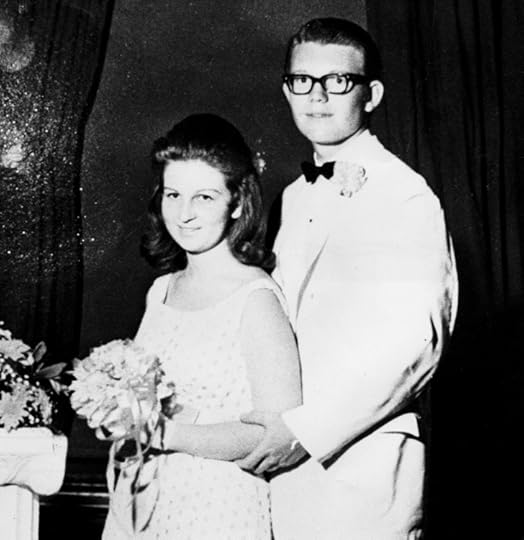
Another weird coincidence is that I was looking for someone to build me a stereo system for my cabin and a friend of mine Bill who is the caretaker at the Cielo Drive told me about a kid named Steven, who is a electronic geek, and could built me a system for a little money. I hired him, and he is a fascinating kid. It appears that he was in trouble time-to-time with the law, due that he stole electronic parts to build radios and equipment of that sort. I used to see him at his nighttime job, which is the Jonas Miller Stereo on Wilshire Boulevard. Some people live lives that they themselves don’t find interesting, but Steven is so into electronics and stereo equipment, I just find him to be the Baudelaire of stereos. He understood the unique work that makes up a sound and therefore a stereo set-up is a very subjective listening device for a customer. I know nothing else about him, because the only subject matter he’s interested in is electronics, especially when it involves sound. He’s perfect!

The truth is when it was now time to go to the party tonight at the house, I chose to stay in my cabin. As I get older the solitude becomes more important to me. I just refuse to be in “need” of the companionship of others. For me, self-reliance can be both spiritual as well as economic. I also don’t drink anything stronger than green tea, so it’s hard for me to go out with friends, because they do drugs, drink and that is not my scene anymore. I just like to go in my backyard in the middle of the night, and lay on the grass and look up at the stars. That’s plenty of company for me, and I really like the stars.
Published on August 09, 2014 09:37
August 8, 2014
August 8, 2014
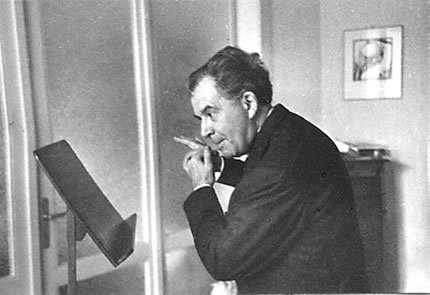
August 8, 2014
After a night of serious drinking, I woke up not with a hangover, but with incredible insight into my blissful state of drunkenness. First things first, I reached for my turntable and put on side one of André Jolivet’s “ Chamer Music for Oboe and Cor Anglais.” I’m very fond of “Serenade" (version for oboe and piano) which is the first cut. It lures me into a state of writing, which is incomprehensible after last night’s adventure with the bottle. One of my favorite and inspirational drunks is Dr. Bob, who was the co-founder of Alcoholics Anonymous with Bill W. I think what impressed me is that his expertise was Colorectal surgery, and throughout his life as a doctor he had to overcome his drunkenness as well as being sober for operations. He tried various methods to stop drinking, but failed. Sometimes he could stay on the wagon, but it was usually too difficult for him. When he met Bill W. that seemed to change his life. Oddly enough, he was provided with a few drinks by Bill W. to avoid delirium tremors and the next day he had a glass of beer, to settle his nerves so he could do an operation. That was his last drink, and he didn't drink from that time till his death at the age of 71.
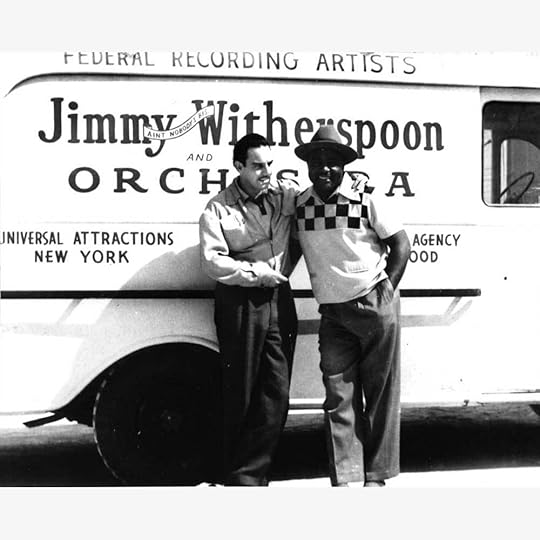
I always wondered if my alcoholism came from the fact that my father co-wrote only one song, and that one song was written with and performed by Jimmy Witherspoon. It’s called “Lush Headed Woman.” The lyrics go like this:
“I got a lush headed woman, and she stays juiced all the time/Gonna quit that woman and get me a square cause lush headed woman is no where” (lyrics by Wallace Berman)
Which actually is good advice not only for one’s mate, but for yourself as well, if you’re a lush headed man of course. The thing with me, drinking is just an art form of sorts. I’m rarely a sloppy drunk, and only a handful of times have I regretted to drink in public. For instance I have this one painful memory of talking to a girl that I had a deep crush on like forever, and finally I had a chance to sit with her at a dinner party. As I was talking to her, and I was smashed, I accidentally hit my glasses off my face which caused it to fall into someone’s soup - will not just be anyone, but her husband at the time. I tried to hide my embarrassment by acting silly, but it was obvious to everyone that I was out-of-it, and not surprisingly, I wasn’t invited back to these people’s house again. One of the pitfalls of public drinking!
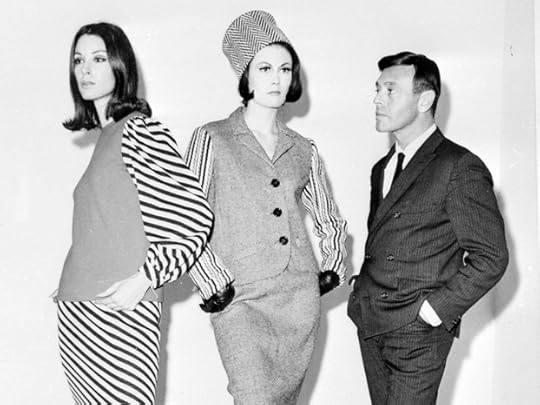
Nevertheless I don’t go out to drink anymore, due to above situations, and especially in front of women that I admire. Beautiful woman plus me drinking is bad math. Now, I pretty much stay at home to focus on the writing of my novel, as well as working on a collection of poetry that will be hopefully will come out by the end of this year. Other then that, I’m trying to focus on writing about a great Los Angeles clothes designer by the name of Rudi Gernreich. He’s famous for making clothing that is unisex, and even designed men’s underwear for women. One of the things that impressed me is his thoughts about the human body and how one sexualizes it. It seems he came from a culture (Vienna) that was comfortable being in the nude, and that there should be no shame regarding one’s body. His first job in Los Angeles was washing bodies before an autopsy at the morgue of Ceders of Lebanon Hospital. I think after a job like that, one can do almost anything. For me, discipline is everything. I love to drink to escape the discipline that is life. But alas, I need to put myself in a prison of my own making to do what I have to do - which is to write.
Published on August 08, 2014 12:21
August 7, 2014
August 7, 2014
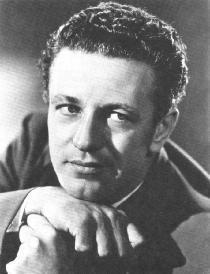
August 7, 2014
There’s no doubt in my mind that cinema is Nicholas Ray. There is not a day in my life where I haven’t thought of the two words together: Nicholas. Ray. Like million others, I was totally devastated by “A Rebel Without A Cause, ” mostly due to the relationship between Jim Stark and John “Plato” Crawford. As a side-line narrative, I was also deeply affected by Stark’s relationship with his dad as well. To this day, I refuse to wear an apron while doing the dishes. I also hunted down Robert M. Lindner's “1944 book “Rebel Without A Cause: The Hypnoanalysis Of A Criminal Psychopath, ” which was the basis for the Ray film. I just recently purchased the film rights to this book, so I can produce a re-make of the film. I’m proud to announce that we just signed Justin Bieber to play Jim Stark, Christopher Walken as Jim’s Dad, and Billy Unger will play Plato. Judy will be played by Selena Gomez, who used to date Bieber, so that will be an interesting sub-text for the film. We also hired Leos Carax to direct the film. We felt that a European approach or point-of-view, will be relevant for this film.

It took me six or seven months, but I located Dean’s original outfit for Jim, and we’re going to have Justin wear it for the film. He’s the exact same size and weight as James Dean, at the time he filmed “Rebel,” so this works out perfectly. We’re also using Irving Shulman and Stewart Stern’s original shooting script for our version as well. There was a scene cut out of the original film, and we’re going to re-shoot it - Jim is dead drunk and he screams at a car in the parking lot, “It’s a little jeep jeep! Little jeep, jeep!” We did a test of this scene with Justin, and it is terrifying with the intensity that he puts in his role. We are also borrowing the 1949 Mercury Coupe that James Dean drove in the film. Luckily the car is in great shape, and is part of the collection at the National Automobile Museum in Reno, Nevada.

We chose to use Leonard Rosenman’s original score as well. We were thinking of doing something modern, but decided not to do that. At one point, we were considering to utilize Jack Nitzsche’s great album “Chopin ’66” but couldn’t obtain the rights. But this is a blessing, because Rosenman’s score is perfect, and there is no reason why we can’t re-use it again. We will also use the Santa Monica High School and the Griffith Observatory as a location for our version of the film. The only thing is we are going to have to remove the bust of James Dean that is located at the Observatory's west side of the grounds. Shooting will start this October and we’re planning a release on Christmas day 2015.
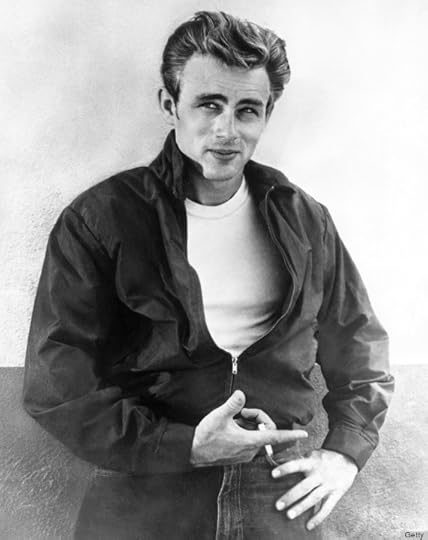
Published on August 07, 2014 11:36
August 6, 2014
August 6, 2014
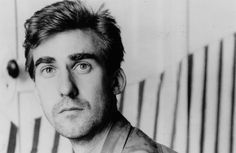
August 6, 2014
As a kid, my parents would take me to Robert Duncan and Jess’ home in San Francisco. What impressed me the most, was that I was always rewarded with a book or two from each visit. In fact, I have a lot of first-edition Oz books by L. Frank Baum, all from Jess and Robert’s library. As a kid, one is drawn into art because it is familiar to their background. For instance I always loved comic books, and I had a thing for “Dick Tracy” comic strip. So when Jess did his famous “Tricky Cad” colleges which were made up totally by cuttings of the original “Dick Tracy” strip, it of course called out to me. I never actually read “Tricky Cad,” but I understood the implications of Jess’s art, because like me, he loved pop culture. The other painting that struck me as being great is his portrait of The Beatles. The oils on the painting were so thick, I felt like I was seeing the Fab Four being layered over with thickness, which to me made perfect sense. Mostly due to the fact that The Beatles held immense importance to me when I was a child. So of course, a magnificent oil painting portrait is totally suitable to its subject matter. Robert was a very charming and out-going gentleman, but Jess was quiet and more reserved. Yet both of them were very sweet towards me, and when you’re a kid, one has that memory for life. The world is very harsh, and as a child I can easily pick up the bad vibes that surround an individual or couple. Jess and Robert seemed to be made for each other, that was natural as breathing fresh mountain air. Or perhaps for them, breathing San Francisco air.

The other time I felt great comfort among grown-ups is when Andy Warhol came to our home in Beverly Glenn to shoot his film “Tarzan and Jane… Regained Sort Of.” Taylor Mead played Tarzan, Naomi Levine played Jane, and I played Tarzan’s son “Boy.” My father played the white hunter, and also Claes Oldenburg was in it as well. The funny thing is I remember that day clearly, but I have no memory of Andy Warhol whatsoever. Gerard Malanga was there as well. I remember everyone except Warhol. Now, I must state here, that Warhol was for sure at the house filming this film, but I just don’t have any memory of him. It was many years later that I saw the film, and it was an odd experience of seeing myself in such a young age, and of course the footage with my deceased father in it. In many ways, it seems like a home-movie to me. As a child, I knew everyone who was in the film: Irving Blum, Dennis Hopper, John Chamberlain, and I felt it was very much of my world as a child. So its difficult for me to see this film as a work of art, or even great importance to others. If they’re not in it, why would they be interested in this film?
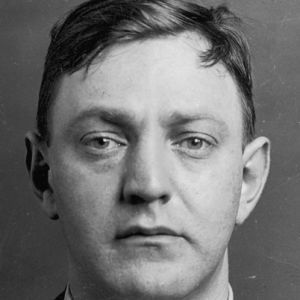
The truth is that like all home movies, they expose more than a family's narcissism. One can taste the favor of one’s neighborhood, or period of time, when the separate world was moving closer to each other, but yet, eventually moves apart. But at least for a fleeting period of time, while watching the film, you can gather a world that once exists. I often have dreams, where the present is mixed up with the past, and its odd because I wake up with a craving for French-Canadian bean soup. In my dreams, I have my collection of papers, but it isn’t worth a nickel to guys like us. I really need that G-note. When I look back at the Warhol film, I can clearly recognize the little boy who played “Boy.”
Published on August 06, 2014 11:01
August 5, 2014
Proofs of Jacques Mesrine's "The Death Instinct" (TamTam Books)
Published on August 05, 2014 15:57

